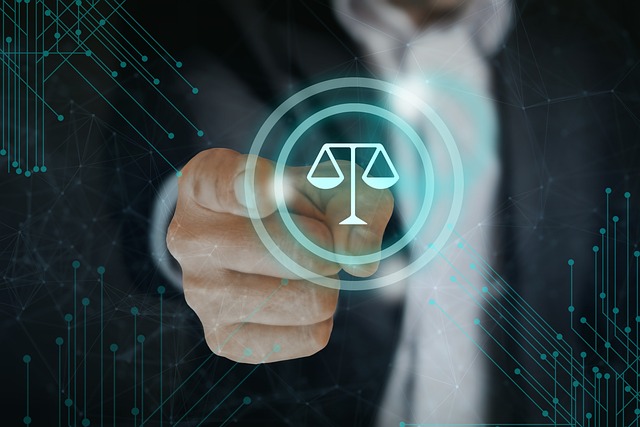C-Level Investigations target misconduct at the top corporate levels, requiring specialized teams to navigate complex cases involving fraud, schemes, and ethical breaches by executives. Key challenges include data analysis, stakeholder interviews, and reconstructing business operations. The Ethical Implications of Plea Bargaining Decisions are crucial in these high-stakes cases, balancing justice and efficiency while managing potential biases and pressures on defendants. Robust oversight, transparent procedures, and thorough communication are essential to maintain public trust. Increased corporate governance scrutiny through C-Level investigations impacts both businesses and regulatory bodies, emphasizing ethical decision-making in white collar defense. These investigations expose systemic issues and set precedents for future legal challenges, urging businesses to enhance compliance strategies.
In the intricate landscape of corporate governance, C-Level investigations play a pivotal role in uncovering hidden wrongdoings. This article delves into the intricacies of these high-stakes inquiries, exploring key facets such as understanding corporate misconduct, the legal strategy of plea bargaining, and its Ethical Implications for Business Leaders and Regulatory Bodies. By examining when plea bargaining crosses ethical lines, we gain insights that are vital to navigating this complex web, ensuring accountability while promoting responsible corporate practices.
- Understanding C-Level Investigations: Uncovering Corporate Wrongdoings
- The Role of Plea Bargaining in Legal Proceedings
- Ethical Considerations: When Does Plea Bargaining Cross the Line?
- Implications for Business Leaders and Regulatory Bodies
Understanding C-Level Investigations: Uncovering Corporate Wrongdoings
C-Level Investigations refer to probes into misconduct at the highest levels of corporate leadership. These high-stakes cases often involve complex financial schemes, fraud, or ethical breaches by top executives and board members. The term ‘C-Level’ signifies the strategic and influential positions these individuals hold within their respective businesses, making their actions and decisions far-reaching.
Uncovering corporate wrongdoings requires meticulous investigation strategies. Law enforcement agencies and regulatory bodies employ specialized teams to navigate intricate financial records, international borders, and legal loopholes. The process involves sifting through extensive data, interviewing key stakeholders, and piecing together a comprehensive understanding of the respective business’s operations. These investigations have significant ethical implications, especially regarding plea bargaining decisions. In high-profile cases, where powerful individuals are accused, the decision to accept a plea bargain can impact not only the accused’s future but also influence public perception of justice and accountability within philanthropic and political communities.
The Role of Plea Bargaining in Legal Proceedings
Plea bargaining is a critical aspect of legal proceedings, offering both advantages and challenges for all parties involved. This strategic process involves defendants negotiating a plea deal with prosecutors, often resulting in a reduced sentence or charges in exchange for a guilty plea. While it streamlines the judicial system by encouraging pleads to guilt, thereby saving time and resources, it also carries significant ethical implications.
The Ethical Implications of Plea bargaining decisions are particularly notable in high-stakes cases, where powerful individuals or respective businesses might face severe consequences. Defendants, for their clients, must weigh the benefits against potential biases or pressures from prosecutors, ensuring fairness and just outcomes. This delicate balance is essential to maintaining public trust in the legal system, especially when dealing with sensitive matters that could impact individuals’ lives and reputations.
Ethical Considerations: When Does Plea Bargaining Cross the Line?
The ethical implications of plea bargaining decisions are a complex web that navigates balance between justice and efficiency in the legal system. While plea bargaining remains a critical tool for achieving extraordinary results and streamlining court processes across the country, it’s crucial to examine when this practice may cross ethical lines. The potential for coercion, unfair pressure on vulnerable defendants, and the impact on future public trust necessitate careful consideration.
Unprecedented track records of successful prosecutions can inadvertently encourage excessive reliance on plea bargains, leading to concerns about due process rights and the fairness of criminal justice. Striking a delicate balance between expediting cases and safeguarding individual liberties is paramount. This involves robust oversight mechanisms, transparent procedures, and ensuring defendants fully comprehend their choices, thereby upholding the integrity of the legal system and promoting public confidence.
Implications for Business Leaders and Regulatory Bodies
The launch of C-Level investigations into high-profile cases has significant implications for business leaders and regulatory bodies alike. As corporate governance becomes increasingly scrutinized, executives must navigate complex legal landscapes to ensure ethical decision-making processes, especially regarding plea bargaining strategies. The ethical implications of plea bargaining decisions are a critical aspect that cannot be overlooked in the realm of white collar defense.
Regulatory agencies now find themselves at the intersection of corporate accountability and individual responsibility when dealing with white collar and economic crimes. Business leaders must recognize their duty to uphold integrity within their organizations, as these investigations can expose systemic issues and set precedents for future legal battles. This shift in focus on executive-level involvement challenges traditional business practices and demands a proactive approach to risk management and compliance strategies.
C-level investigations, focusing on corporate wrongdoings, highlight the intricate balance between legal proceedings and ethical considerations. As plea bargaining plays a significant role in legal strategies, understanding its implications is crucial for business leaders and regulatory bodies alike. Navigating the ethical landscape involves recognizing when these agreements may cross moral boundaries. By scrutinizing the ethical implications of plea bargaining decisions, stakeholders can ensure fair practices, foster accountability, and maintain public trust, ultimately revolutionizing corporate governance and integrity.






